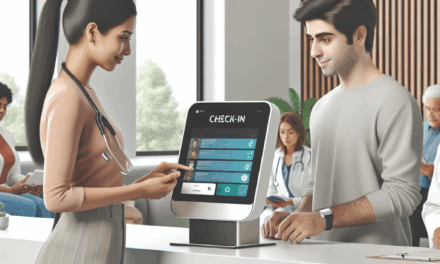Google Makes a Major Move for Wiz as Clearwater Joins CancerX
In the rapidly evolving landscape of technology and healthcare, significant partnerships and acquisitions can reshape entire industries. Recently, Google made headlines with its acquisition of Wiz, a cloud security startup, while Clearwater joined the CancerX initiative, aimed at revolutionizing cancer care. This article delves into the implications of these developments, exploring their potential impact on cloud security, healthcare innovation, and the broader tech ecosystem.
The Acquisition of Wiz: A Strategic Move by Google
Google’s acquisition of Wiz marks a pivotal moment in the realm of cloud security. Wiz, founded in 2020, has quickly established itself as a leader in cloud security solutions, providing organizations with tools to identify and mitigate vulnerabilities in their cloud environments. This acquisition is not just about expanding Google’s portfolio; it represents a strategic alignment with the growing demand for robust cloud security solutions.
Understanding Wiz’s Technology
Wiz’s technology is designed to provide comprehensive visibility into cloud environments, enabling organizations to detect vulnerabilities, misconfigurations, and compliance issues. The platform integrates seamlessly with major cloud service providers, including AWS, Azure, and Google Cloud, offering a unified view of security across multi-cloud environments.
- Vulnerability Management: Wiz employs advanced algorithms to scan cloud environments for vulnerabilities, providing actionable insights to security teams.
- Compliance Monitoring: The platform helps organizations maintain compliance with industry standards and regulations, reducing the risk of costly fines.
- Real-time Threat Detection: Wiz offers real-time monitoring capabilities, alerting organizations to potential threats as they arise.
This technology is particularly relevant as more organizations migrate to the cloud, increasing the attack surface for cyber threats. By acquiring Wiz, Google aims to enhance its security offerings and provide customers with the tools they need to protect their data in an increasingly complex digital landscape.
The Growing Importance of Cloud Security
The rise of cloud computing has transformed how businesses operate, but it has also introduced new security challenges. According to a report by Gartner, global spending on cloud security is expected to reach $12.6 billion by 2025, reflecting the urgent need for effective security solutions.
As organizations adopt multi-cloud strategies, the complexity of managing security across different platforms increases. Wiz’s ability to provide a holistic view of security across various cloud environments positions it as a valuable asset for Google, which is committed to ensuring the security of its cloud services.
Implications for Google Cloud
Google Cloud has been making significant strides in the cloud market, competing with giants like Amazon Web Services (AWS) and Microsoft Azure. The acquisition of Wiz is expected to bolster Google Cloud’s security capabilities, making it a more attractive option for enterprises concerned about data protection.
By integrating Wiz’s technology into its existing security framework, Google can offer enhanced security features that differentiate its services from competitors. This move aligns with Google’s broader strategy to position itself as a leader in cloud security, addressing the growing concerns of businesses regarding data breaches and cyber threats.
Market Reactions and Future Prospects
The acquisition has garnered positive reactions from industry analysts, who view it as a strategic move that enhances Google’s competitive edge in the cloud market. As organizations increasingly prioritize security in their cloud adoption strategies, Google’s investment in Wiz is likely to pay off in the long run.
Looking ahead, the integration of Wiz’s technology into Google Cloud is expected to lead to the development of new security features and services. This could include advanced threat detection capabilities, improved compliance tools, and enhanced visibility into cloud environments, further solidifying Google’s position in the cloud security landscape.
Clearwater Joins CancerX: A New Era in Cancer Care
In a parallel development, Clearwater’s recent partnership with CancerX signifies a major step forward in the fight against cancer. CancerX is an initiative aimed at accelerating innovation in cancer care through collaboration among various stakeholders, including technology companies, healthcare providers, and research institutions.
The Mission of CancerX
CancerX was established with the goal of transforming cancer care by leveraging technology and innovation. The initiative focuses on several key areas:
- Data Sharing: Facilitating the sharing of data among researchers, clinicians, and technology developers to drive innovation.
- Patient-Centric Solutions: Developing solutions that prioritize patient needs and improve the overall experience of cancer care.
- Collaboration: Bringing together diverse stakeholders to foster collaboration and accelerate the development of new therapies and technologies.
Clearwater’s involvement in CancerX aligns with its mission to enhance healthcare through technology. The company specializes in cybersecurity solutions for the healthcare sector, ensuring that sensitive patient data is protected while enabling innovation in cancer care.
The Role of Technology in Cancer Care
Technology plays a crucial role in modern cancer care, from early detection to treatment and patient management. Innovations such as telemedicine, artificial intelligence, and data analytics are transforming how cancer is diagnosed and treated.
For instance, AI algorithms are being used to analyze medical images, improving the accuracy of cancer diagnoses. Telemedicine has made it easier for patients to access care, especially in rural areas where specialized services may be limited. Clearwater’s expertise in cybersecurity ensures that these technologies can be implemented safely, protecting patient data while enabling advancements in care.
Clearwater’s Contributions to CancerX
As a member of CancerX, Clearwater brings valuable expertise in cybersecurity and data protection. The company’s solutions are designed to safeguard sensitive health information, ensuring that patient data remains secure as it is shared among researchers and healthcare providers.
Clearwater’s participation in CancerX also highlights the importance of cybersecurity in healthcare innovation. As more organizations adopt digital solutions to improve cancer care, the risk of data breaches increases. Clearwater’s commitment to protecting patient data is essential for fostering trust among patients and healthcare providers.
Case Studies: Successful Collaborations in Cancer Care
Several successful collaborations in cancer care demonstrate the potential of initiatives like CancerX. For example, the partnership between IBM Watson Health and Memorial Sloan Kettering Cancer Center has led to advancements in personalized cancer treatment. By leveraging AI and data analytics, this collaboration has improved treatment recommendations for patients based on their unique genetic profiles.
Another notable example is the collaboration between Google Health and various healthcare organizations to develop AI algorithms for early cancer detection. These partnerships have resulted in significant advancements in diagnostic accuracy, showcasing the power of collaboration in driving innovation in cancer care.
The Future of Cancer Care Innovation
The partnership between Clearwater and CancerX is expected to pave the way for new innovations in cancer care. By combining cybersecurity expertise with cutting-edge research and technology, this collaboration has the potential to accelerate the development of new therapies and improve patient outcomes.
As the healthcare landscape continues to evolve, initiatives like CancerX will play a crucial role in fostering collaboration and driving innovation. The integration of technology into cancer care will not only enhance treatment options but also improve the overall patient experience.
The Intersection of Technology and Healthcare
The developments surrounding Google’s acquisition of Wiz and Clearwater’s partnership with CancerX highlight the growing intersection of technology and healthcare. As technology continues to advance, its impact on healthcare will become increasingly profound.
Emerging Technologies in Healthcare
Several emerging technologies are poised to transform healthcare, including:
- Artificial Intelligence: AI is being used to analyze vast amounts of medical data, improving diagnostics and treatment recommendations.
- Telehealth: Telehealth solutions are making healthcare more accessible, allowing patients to receive care from the comfort of their homes.
- Wearable Devices: Wearable technology is enabling continuous monitoring of patients’ health, providing valuable data for healthcare providers.
These technologies are not only improving patient outcomes but also streamlining healthcare operations. However, as technology becomes more integrated into healthcare, the need for robust cybersecurity measures becomes paramount.
The Importance of Cybersecurity in Healthcare
Cybersecurity is a critical concern in healthcare, where sensitive patient data is constantly at risk of breaches. According to a report by IBM, the healthcare industry experienced the highest average cost of a data breach in 2021, highlighting the urgent need for effective security solutions.
As healthcare organizations adopt digital solutions to improve patient care, they must also prioritize cybersecurity. This includes implementing robust security measures, conducting regular risk assessments, and ensuring compliance with regulations such as HIPAA.
Collaboration Between Tech and Healthcare Companies
The collaboration between technology companies and healthcare organizations is essential for driving innovation and improving patient care. By working together, these stakeholders can develop solutions that address the unique challenges faced by the healthcare industry.
For example, partnerships between tech companies and healthcare providers have led to the development of telehealth platforms that prioritize patient privacy and security. These collaborations ensure that patients can access care while their sensitive information remains protected.
Case Studies of Successful Tech-Healthcare Collaborations
Several successful collaborations between tech and healthcare companies illustrate the potential of this intersection. For instance, the partnership between Microsoft and the University of California, San Francisco (UCSF) has resulted in advancements in precision medicine, leveraging AI to analyze genetic data and improve treatment outcomes.
Another example is the collaboration between Apple and various healthcare organizations to develop health monitoring features in wearable devices. These partnerships have enabled the collection of valuable health data while ensuring patient privacy and security.
The Future of Tech-Healthcare Partnerships
The future of healthcare will be shaped by continued collaboration between technology and healthcare companies. As the demand for innovative solutions grows, these partnerships will play a crucial role in driving advancements in patient care and improving health outcomes.
Conclusion: A New Era of Innovation
The recent developments surrounding Google’s acquisition of Wiz and Clearwater’s partnership with CancerX signify a new era of innovation in both cloud security and cancer care. As technology continues to evolve, its impact on healthcare will become increasingly profound, driving advancements that improve patient outcomes and enhance the overall healthcare experience.
By prioritizing cybersecurity and fostering collaboration among diverse stakeholders, these initiatives have the potential to reshape the future of healthcare. As organizations navigate the complexities of digital transformation, the lessons learned from these developments will be invaluable in guiding future innovations.
In summary, the intersection of technology and healthcare presents both challenges and opportunities. By embracing innovation and prioritizing security, organizations can drive meaningful change in the healthcare landscape, ultimately improving the lives of patients around the world.





